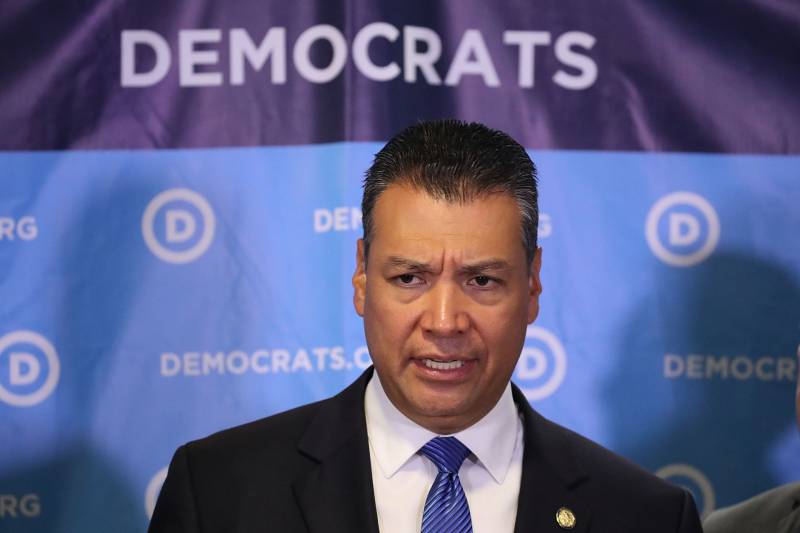As the man overseeing a crucial presidential election in the middle of a pandemic that has necessitated sending every active voter in the state a mail-in ballot, Secretary of State Alex Padilla has a lot of responsibility on his plate.
Voters elected Democrat Padilla in 2014 and re-elected him four years later. Termed out in 2022, Padilla, like any career politician, is no doubt thinking about his next political move and is widely thought to be eyeing a U.S. Senate seat, like the one which would become available if Kamala Harris becomes vice president, earning her a spot in history in Washington, D.C.
While Padilla is widely considered to be pondering his climb up the political ladder, some are focusing on how that ambition may influence the job he’s doing now.
Some election watchdogs wonder if California would be better served by having a nonpartisan or appointed Secretary of State to remove any questions about partisan leanings or political decisions in what is fundamentally supposed to be a job free of politicking.
“We want a Secretary of State in a way to be more like a judge, to make decisions based on the law and the facts, to make decisions a little bit removed from political pressure,” said Loyola Law School professor Jessica Levinson.

